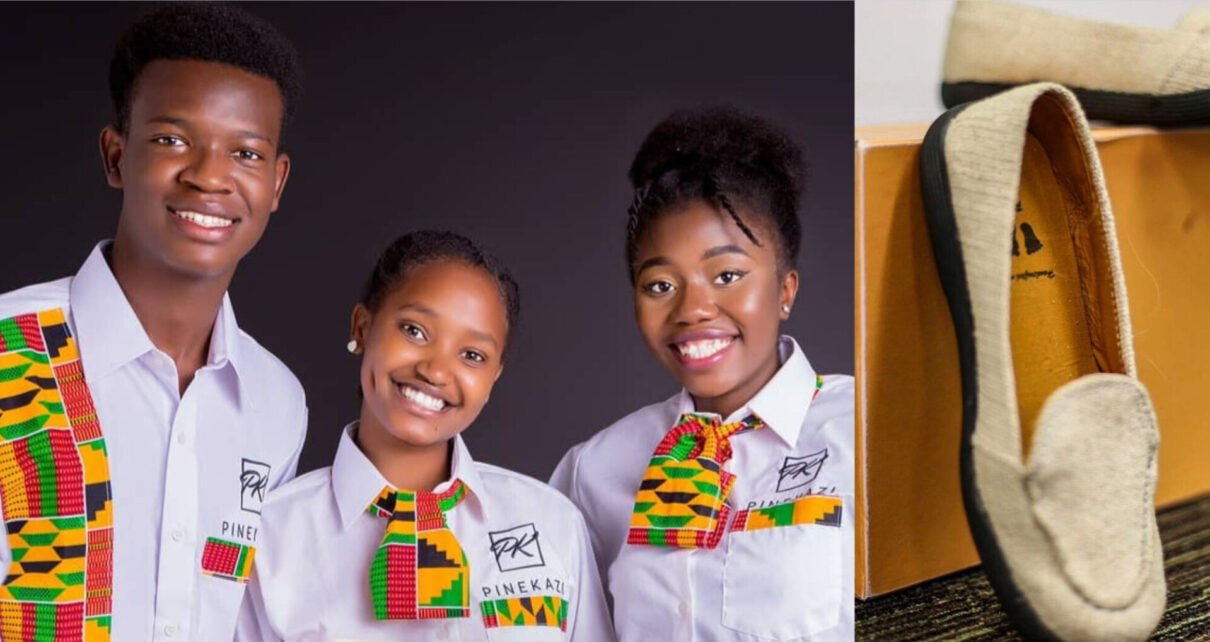As the global focus shifts towards sustainability, Africa is stepping up to embrace the green revolution. Young entrepreneurs across the continent are leading this transformation, crafting innovative and eco-friendly solutions to address pressing environmental challenges.
One remarkable example is PineKazi, a Kenyan startup established in 2019. At the forefront of sustainable innovation, PineKazi transforms pineapple leaves and recycled rubber into footwear, tackling the problem of agricultural waste from pineapple production in the process.
PineKazi’s groundbreaking approach has garnered international recognition. The startup purchases pineapple leaves, or suckers, from local farmers at a rate of Sh. 15 each, processing them into fibers that are then used to create high-quality, sustainable products. According to the co-founders — Olivia Awuor, Angela Musyoka, and Mike Langat — it takes approximately 16 pineapple suckers to produce a single product, which retails at Sh. 6,900, with wholesale pricing available at Sh. 5,600.
The young entrepreneurs emphasize that their production process is mostly handmade, requiring significant time and effort. “Annually, about 766 million tonnes of post-harvest pineapple leaves are produced and typically burned or chemically decomposed,” explains CEO Olivia Awuor. “By collecting this waste, for every 1,000 tonnes, we reduce carbon and methane emissions by 0.28 metric tonnes.”
PineKazi’s efforts have earned the startup recognition as one of the top six African enterprises making measurable and positive contributions to the United Nations Sustainable Development Goals. Their achievements include winning the Hult Prize Summit regionals in Nairobi and advancing to the global accelerator program in Paris, France.
Judges at these competitions praised PineKazi’s shoes for their innovative and sustainable design. The upper portion of the shoes is crafted from pineapple textile, the inner lining is made of organic cotton, and the sole comprises sisal plant fiber reinforced with recycled tires. This unique combination not only underscores the company’s commitment to sustainability but also highlights the potential for creative reuse of agricultural and industrial waste.
However, like many startups, PineKazi faces financial constraints that limit their ability to expand, conduct further research, and optimize operations. Despite these challenges, CEO Olivia Awuor has expressed the company’s ambition to develop new products in the future. Additionally, their success in competitions has provided them with valuable media exposure, mentorship, and networking opportunities to support their growth.
PineKazi stands as a shining example of how Africa’s young innovators are driving the green movement forward. By turning agricultural waste into eco-friendly products, they not only contribute to a sustainable future but also inspire others to explore innovative solutions for global challenges.


